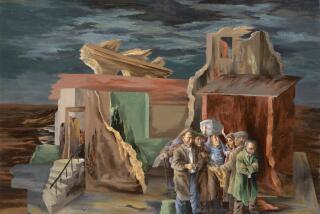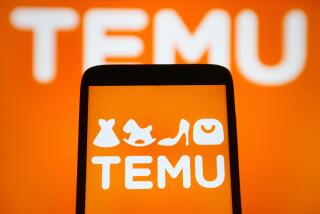‘Made in America’ is tough sell at Smithsonian
In the gift shops of the Smithsonian Institution’s National Museum of American History, miniature statues of George Washington and Abraham Lincoln sit next to toy U.S. soldiers beckoning tourists to take them home.
But despite their uniquely American character, those items and many others are made in China, rankling two lawmakers who have been fighting to get the publically financed Smithsonian museums to sell more American-made products.
It started in January, when Sen. Bernie Sanders (I-Vt.) raised the issue after visiting the Museum of American History and discovering that miniature statues of American presidents for sale were made in China.
The senator wrote a letter to museum director Brent D. Glass and succeeded in getting the museum to commit to having one of its three gift shops sell exclusively American-made products.
“If a museum owned by the people of the United States of America, which is dedicated to our own history, can’t find products made in the U.S., we’re in pretty sad shape,” Sanders said.
Now Rep. Nick J. Rahall II (D-W.Va.) is going a step further. He has introduced a bill that would require all items sold in any of the Smithsonian’s 30 stores, located in 19 museums and galleries and its zoo, to be made in the United States.
“It is utterly absurd and frankly insulting that the patriotic American mementoes [visitors] are taking home today are stamped with the words ‘Made in China,’” Rahall said in a statement.
If the Smithsonian were to violate the terms of the legislation, it would lose its federal funding. Melinda Machado, director of public affairs for the Museum of American History, said 70% of the museum’s budget comes from the government.
According to the Smithsonian, made-in-America gifts would come at a cost to shoppers.
Smithsonian spokeswoman Becky Haberacker said the average gift shop visitor buys two items and spends $20. The presidential busts mentioned by Sanders retail for $25 but would cost $40 if purchased from American manufacturers, she said.
“We want to provide a wide range of products for people to buy at a variety of price points,” Haberacker said. “We have a spectrum of visitors from kids who are coming on their class trip to older couples coming on a vacation, so we want to make sure that there’s something here that everybody can take home to commemorate their trip.”
She added that certain products offered in the shop were no longer manufactured in the U.S. She cited umbrellas with the Smithsonian logo printed on them as an example.
Sanders said he wasn’t prepared to withhold funding unless the museum failed to honor a commitment to being more aggressive in obtaining and selling American-made products, but Rahall said changing just one store didn’t cut it.
“Every item they sell that is made in America is a step in the right direction, but it’s not enough to have one token gift shop showcasing American arts and crafts when all of its shops could be selling items made here,” Rahall said.
Last year, the Smithsonian made about $9 million in profits from the gift shops. “This is very important money for Smithsonian, especially because it goes to fund activities and public programs and exhibitions — the things that people come to Smithsonian to see,” Haberacker said.
Machado said that American products usually had higher price tags than their foreign counterparts. She said that whether Smithsonian gift shops could generate similar profits if they sold only American products is “the big question.”
The Price of Freedom museum shop on the third floor of the Museum of American History will begin carrying only American-made products in early July.
More to Read
Start your day right
Sign up for Essential California for news, features and recommendations from the L.A. Times and beyond in your inbox six days a week.
You may occasionally receive promotional content from the Los Angeles Times.






